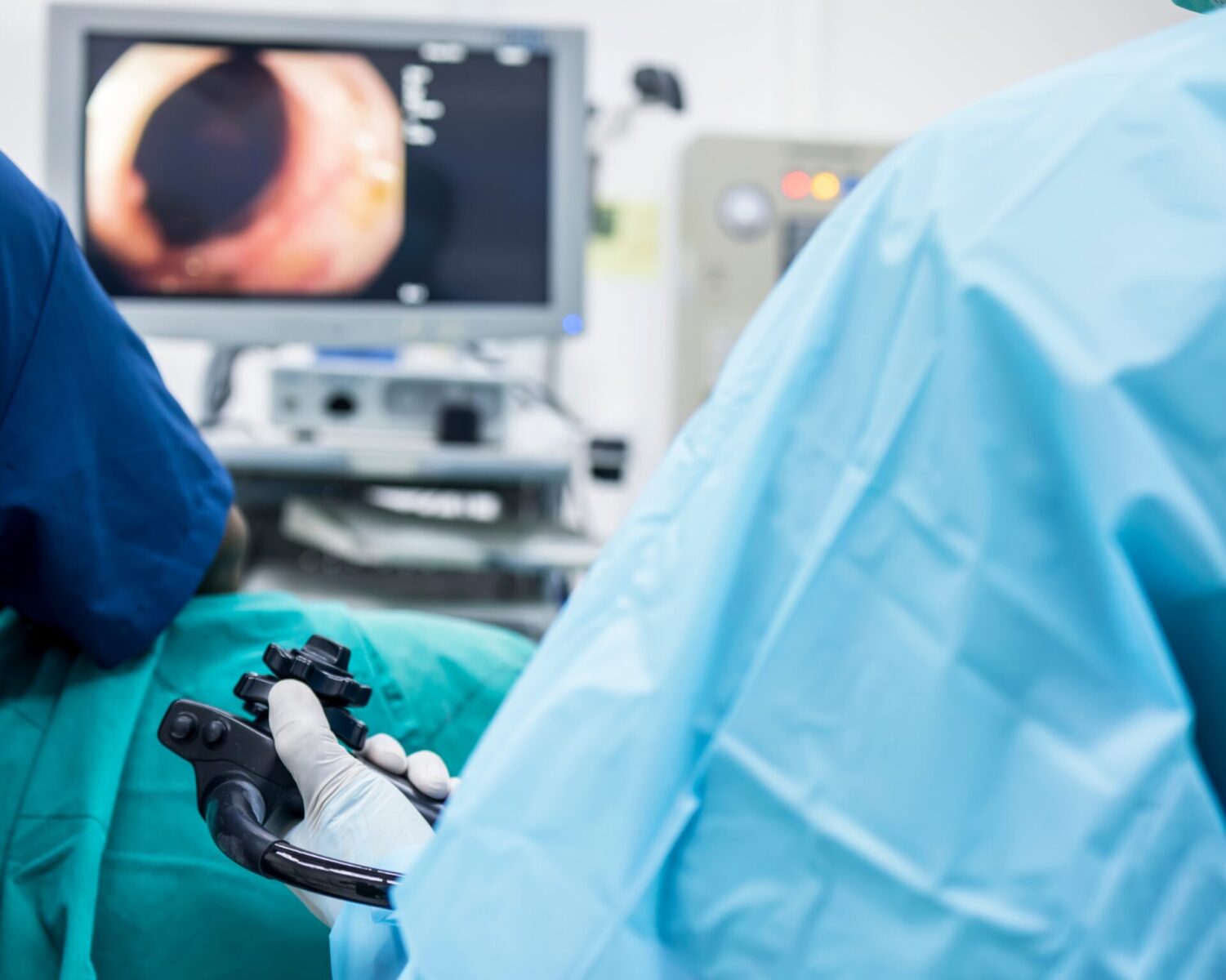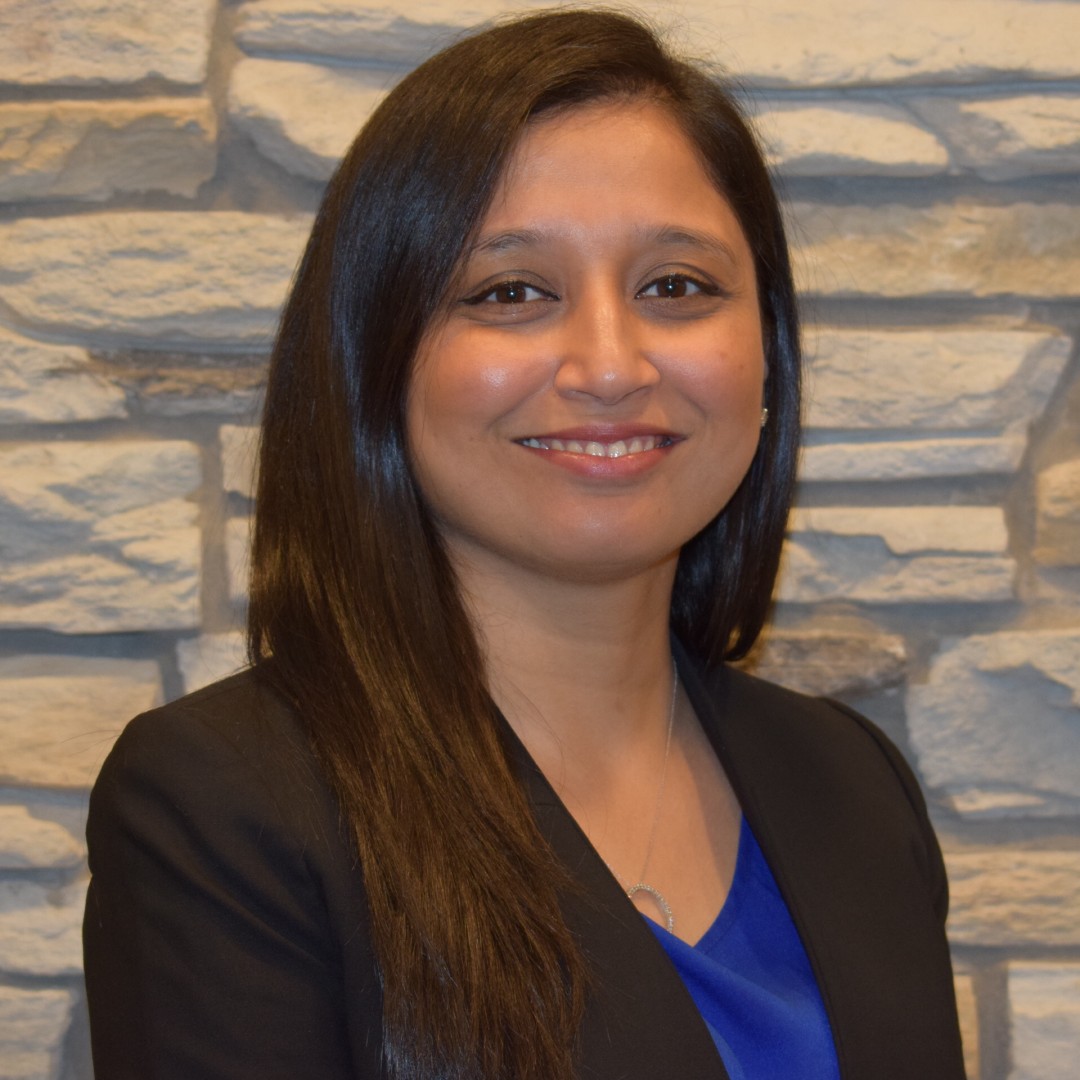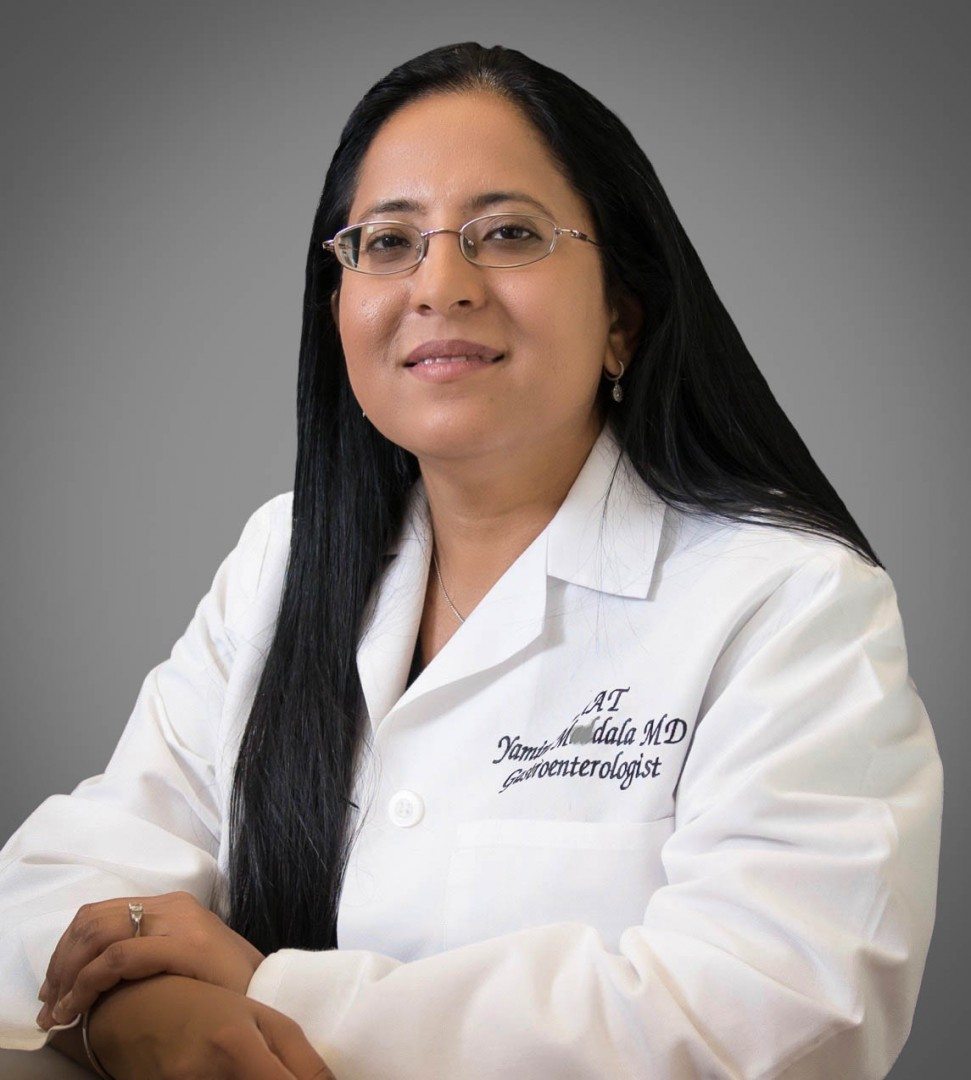Colonoscopy
Whether or not you have a family history of colorectal cancer, we recommend undergoing a colonoscopy by the time you turn 50. This minimally invasive procedure examines the colon—also known as the large intestine—and the rectum. Although it has other purposes, a colonoscopy is primarily used to detect and prevent colon cancer.
Do you need to schedule a colonoscopy in McKinney, Texas? Click the button below to find a gastroenterologist near you.

How Does a Colonoscopy Work?
Wondering how a colonoscopy works? Check out this five-step process.
- The patient is given a sedative so no pain or discomfort is felt during the procedure.
- The doctor inserts a colonoscope into the patient’s rectum. This is a thin, flexible tube with a small camera attached to the end.
- The camera captures still and live images of the rectum and colon, which appear on a nearby screen for the doctor to examine.
- If any polyps are present, the doctor will remove them.
- The doctor will send a polyp sample to a lab for further testing to see whether it’s cancerous.
What to Expect
Here’s what you can expect before and after a colonoscopy.
Before the Procedure
- Don’t eat or drink anything starting the night before your colonoscopy. This prepares your bowels for the procedure. Your doctor may ask you to take a laxative to expedite the process.
- Let your doctor know the following:
- All prescription and over-the-counter medications you currently take
- If you have a family history of colorectal cancer
- If you have a history of bleeding disorders
- If you’re pregnant
After the Procedure
- After waking up from the sedative, you can return home. You will need a family member or friend to drive you to and from the medical center, as the sedative will still be wearing off.
- You may experience bloating and/or light bleeding in your first bowel movement after the procedure. If these symptoms last longer than a few days, let your doctor know immediately.
When Is a Colonoscopy Necessary?
Colonoscopies are used for the reasons outlined below.
Cancer Screening
Colorectal cancer—which is cancer of the colon and rectum—is one of the most common types of cancer in the U.S. A colonoscopy helps doctors detect colorectal cancer, particularly in its early stages.
Cancer Prevention
A colonoscopy removes abnormal growths called polyps before they become cancerous.
Identify Underlying Causes
A colonoscopy helps doctors identify the causes of:
- Rectal bleeding
- Bowel activity changes
- Abdominal pain
- Unusual weight loss
Diagnosis
Colonoscopies help doctors diagnose:
- Crohn’s disease
- Ulcerative colitis
At What Age Should I Get a Colonoscopy?
Patients who have a history of colorectal cancer should get a colonoscopy around age 45, possibly younger. Patients who don’t have a family history of colorectal cancer should get their first colonoscopy at age 50. After your first colonoscopy, you should get a follow-up procedure every ten years until you turn 75.

Meet Our Gastroenterologists
Click On A Physician’s Name To See Their Profile:
Connect With Us
If you’re looking to schedule a colonoscopy in McKinney, TX, you’ve come to the right place. As the center for surgical excellence, Methodist McKinney Hospital has skilled surgeons and advanced technology to perform a colonoscopy for our patients. Contact us at the link below to get more information or to schedule an appointment.







